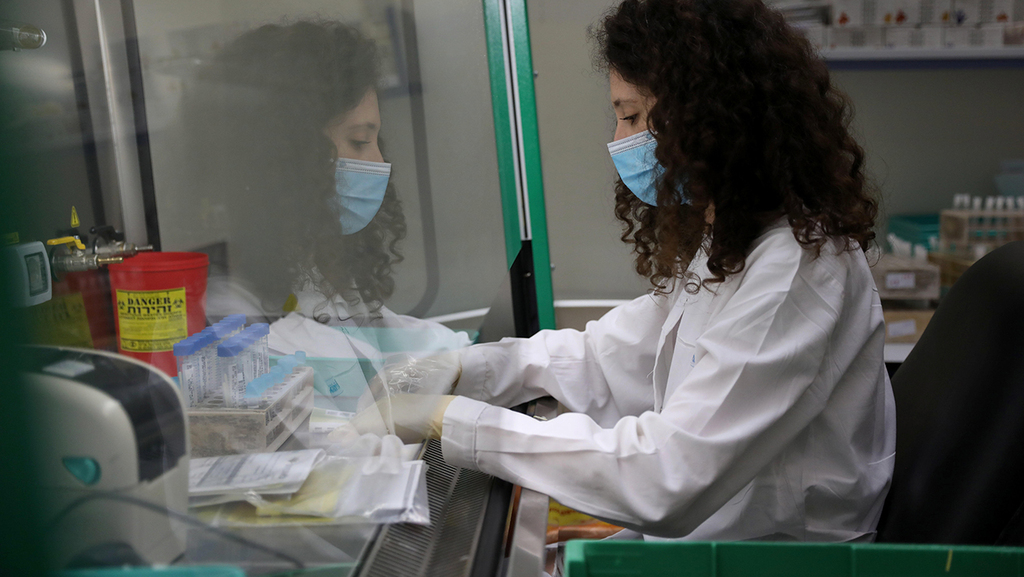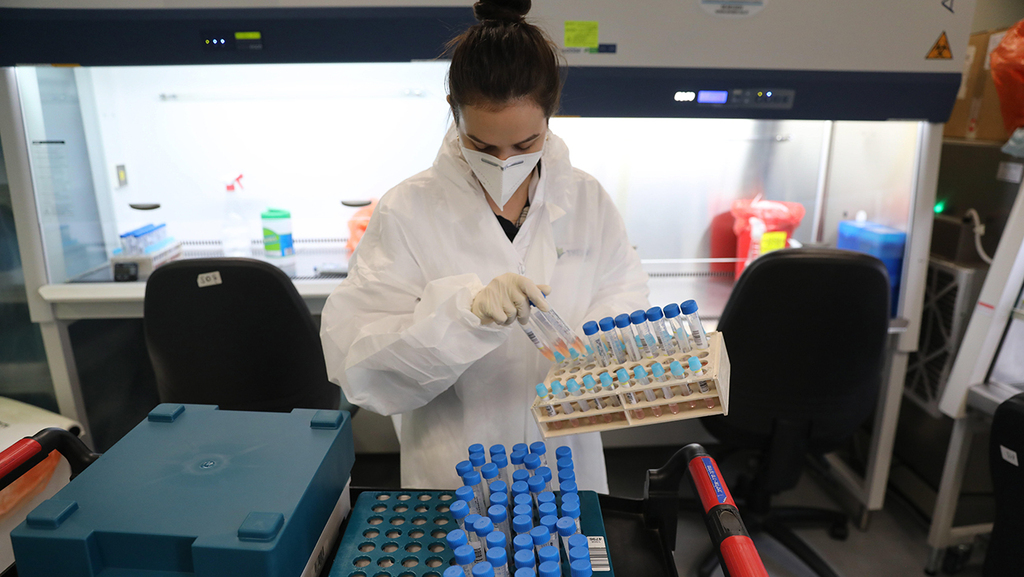A serological survey published Thursday reveals that only 5.5% of Israel's population has coronavirus antibodies, meaning it is far lower than 60% needed for the public to develop herd immunity to COVID-19.
Israel has seen a massive resurgence of coronavirus over the past few weeks, prompting the government to implement a second nationwide lockdown and some to speculate that a high infection rate might eventually lead to herd immunity, which occurs when a large portion of a community becomes immune to a disease.
The survey was conducted by the Health Ministry between July and September of this year. Among men, the presence of antibodies in 4.9% of those tested was higher than the 3.1% in women, while among children in the 10-18 age group, the presence of antibodies stood at 8.1%.
The presence of antibodies was highest in the country among residents of Jerusalem and the surrounding communities with 9.5%, followed by Tel Aviv and its suburbs with 2.2% and Haifa and its suburbs with 1.1%.
The findings show the rate of exposure to the virus in Israel is well below the numbers needed to reach herd immunity. Furthermore, a high level of antibodies in blood does not necessarily ensure long-term immunity against the pathogen.
The Health Ministry, therefore, reiterates the importance of wearing masks, maintaining social distance and personal hygiene, even among those who have been found positive to antibodies.
The study was conducted in collaboration with four of Israel's HMOs and included a sample of 55,000 people from cities and towns all across the country. The ministry will conduct more similar surveys in the future with the aim of learning about the population's exposure to the virus during the second coronavirus wave.
"Israel is among the first countries in the world to conduct a serological survey on a national scale," said Health Minister Yuli Edelstein in a statement. "The survey is part of the Health Ministry's efforts to find more innovative methods for diagnosing coronavirus, including a global and continuous survey to identify advanced and reliable means for rapid detection of the disease."



